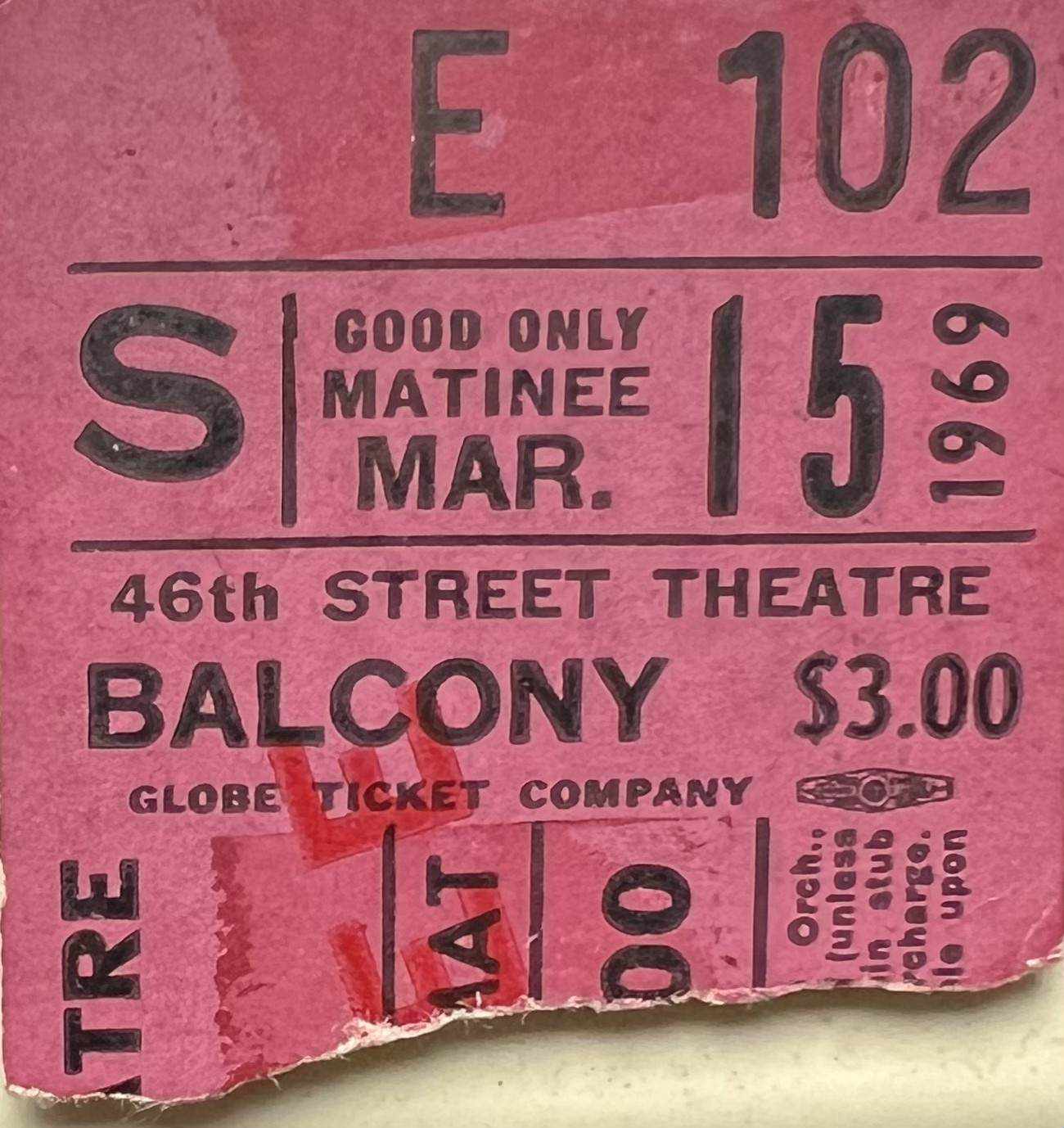
July 12, 2020: Theatre Yesterday and Today, by Ron Fassler
In 2002, the Billy Joel-Twyla Tharp musical Movin’ Out opened in Chicago en route to Broadway. The reviews were mixed to terrible, but okay — that’s what out of town tryouts are for. In light of that feedback, Twyla Tharp, one of modern dances most respected choreographers, did something admirable: she took the critical brickbats to heart, left her ego outside the rehearsal room door, and somehow managed to make the necessary changes that turned a near flop into a hit, not only on Broadway, but worldwide as well.
Very few shows in the modern era have been able to successfully re-craft, (sometimes re-design), but most importantly re-think a production under acute pressure like this. Not only is a clock ticking towards a pre-determined (and pre-advertised) opening night on Broadway, but every extra day on the road costs money, digging into whatever (if any) advance sale a show may have. Often with the creative team in such a pressurized state, panic and fear become the order of the day, and it is not uncommon for the leader — the captain of the ship — to be fired. It there isn’t clear focus and decisiveness in managing how various cuts and additions are handled, then it’s this same captain who will go down with the ship when the whole thing sinks on opening night once the New York critics have their say.
Enough of the nautical metaphors.
This is why it has always been common, at this critical juncture, for a play or musical in trouble to bring in someone from the outside, not only for their objective expertise, but for their talents as a diagnostician. When time is money, practical skills are what is most needed; an ability for someone to focus in on what’s killing a show, say its greatest weakness, then find a way to fix it in hopes to stop the internal bleeding. This is how great play “doctors” were born. Once upon a time these included names of directors and playwrights (and those who did double-duty like George S. Kaufman, Moss Hart and Abe Burrows), as well as Neil Simon, Mike Nichols and George Abbott. It was Mr. Abbott (that’s what everyone called him) who once said, while watching from the back of the house a show of his that was failing up on stage, “I don’t know what else we should do except call George Abbott.”
Actor-turned-director Jerry Zaks has spent many an hour nursing out of town shows, becoming one of the few steady and reliable directors who could be called upon to troubleshoot a play or musical. He did this a decade ago with The Addams Family after a poor showing in Chicago, but a few years earlier he couldn’t save Paul Simon’s The Capeman or Frank Wildhorn’s The Civil War when brought on board. His most successful rescue effort was replacing the director on Leiber & Stoller’s Smokey Joe’s Cafe, taking if from a troubled and rather ordinary revue into a hit that ran for five years. The laws of probability are that a lot of directors shy away from taking the helm on some shows (many of which then simply die on the vine). After all, why should their names show up in an opening night review for something they had little to do, with except come in near the end and attempt to slow down or reverse gears on a runaway train. As William Goldman put it so succinctly in his well-written account of one Broadway season’s worth of hits and misses, The Season, the task amounts to nothing more than “washing garbage.”
There are certainly examples of happy endings when fresh eyes prevented a show from disaster. One such effort was the reworking of George and Ira Gershwin’s Funny Face (retitled My One and Only) which suffered a merciless critical drubbing in its Boston tryout over thirty years ago. The original director, opera’s avant garde Peter Sellars, was fired and Mike Nichols came in to see what he could do. Unfortunately, after only a few days of “unofficially” working on it, Nichols threw up his hands declaring the whole enterprise hopeless. That’s when Tommy Tune, the star of the show, stepped in and performed the required major surgery on the patient, resulting in not only a solid recovery, but the show’s eventual success on Broadway. Without his intervention, it would have expired on the operating table in Boston. *
I’m in metaphor mode again and could go on with the “doctor” jokes forever because, like many cliches, they’re mostly true. A concern these days is that there’s a doctor shortage. No one has really emerged over the last few years to step in and take the risk of maybe being tainted with a potential blotch on their resume and take over a show when it’s at a distinctly low ebb. There aren’t that many out there anymore who have endured the trials and tribulations of enough out of town runs to possess a road map in their heads that would aid in avoiding all the danger signs and wasteful detours on a road to recuperation.
I’m on track now driving through auto metaphors now. Wow — I really can’t stop myself!
The point is, with Movin’ Out, Twyla Tharp dug in and did the work. Her discipline as a dancer served her well. She took advice that was offered and fixed what was necessary. It sounds easy, but it’s damn hard. And there’s never any guarantee that the new path is any better than the old one, unless the audience tells you so.
Just ask Ms. Tharp. In 2006, she suffered an awful case of deja vu when her next dance show, based on another songwriter’s catalogue, collapsed entirely. Her Bob Dylan musical, The Times They Are A-Changin’, had a tumultuous tryout in San Diego (three actors were fired, which was the least of its problems), before it limped into town, closing up shop at the Brooks Atkinson Theatre after just 28 performances.
Sometimes, the patient just dies. 😢
If you enjoy these columns, check out Up in the Cheap Seats: A Historical Memoir of Broadway, available at Amazon.com in hardcover, softcover and e-book. Also sign up to follow me here, and feel free to email me with comments or questions at Ron@ronfassler.org.





















Write a comment ...